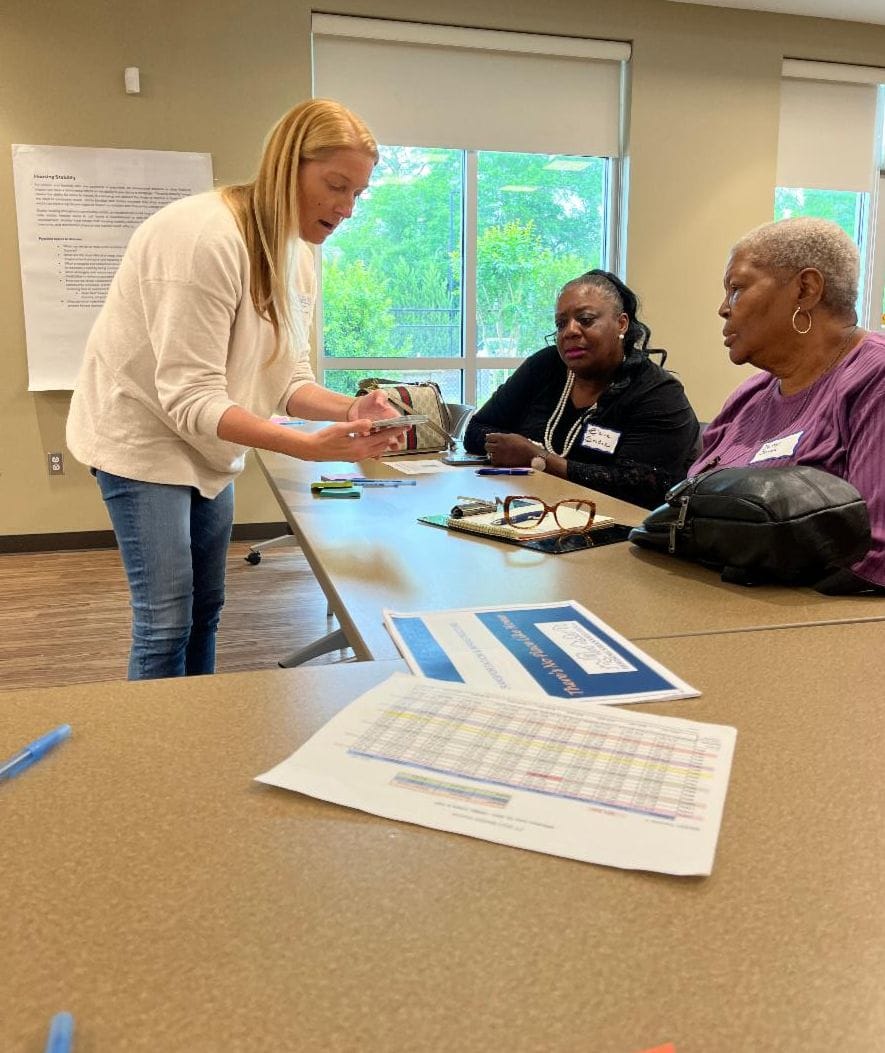By Altimese Nichole
IN Savannah, community matters. Housing Savannah, Inc., established as a community-led initiative, centralizes its efforts on growing community resources to preserve and create housing that is affordable for everyone.
The organization collaborates closely with residents, businesses, and government leaders to preserve and create housing that meets the diverse needs of Savannah’s population. Their efforts are not just about building homes but about fostering a sense of community and economic stability, ensuring that no family has to choose between paying rent and meeting other essential needs like food, healthcare, and education.
Leading this charge is the Executive Director of Housing Savannah, Laura Lane McKinnon, whose vision and dedication are instrumental in driving the organization’s goals.
As a key figure in Savannah’s ongoing efforts to address housing challenges, the Executive Director brings a wealth of experience and a deep commitment to making affordable housing a reality for all.
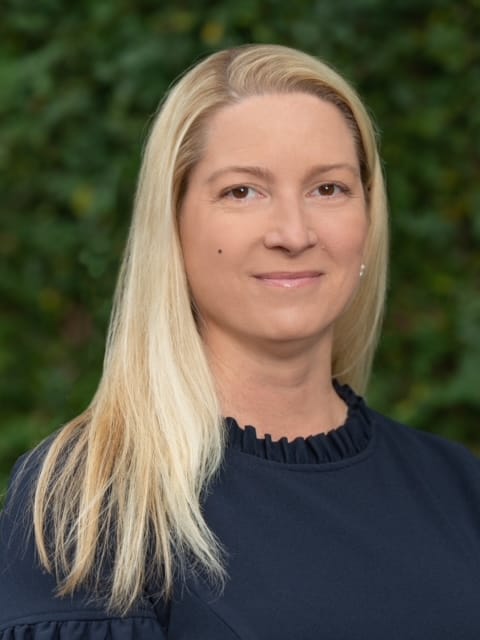
This interview delves into McKinnon’s insights, strategies, and the broader impact of Housing Savannah on the community, providing a comprehensive understanding of why affordable housing is essential for Savannah’s growth and well-being.
Can you share how the organization addresses the unique housing needs of different segments of the Savannah community?
We do this through collaboration, education, advocacy, and fundraising for the Savannah Affordable Housing Fund (SAHF).
The SAHF is a locally managed and administered fund, with four main programs designed to meet the needs of our local community: 1) home repair, 2) down payment assistance for first-time home buyers, 3) construction of affordable units, and 4) emergency assistance with utilities or housing (rental or mortgage) arrears in partnership with the United Way.
How did you become connected to the mission of Housing Savannah, and what intertwined your life with its vision of creating and cultivating community?
I’ve worked in non-profits my entire adult life, in a variety of sectors including historic preservation, higher education, homelessness, intellectual and developmental disabilities, and end-of-life healthcare, before jumping in with both feet into equitable and attainable housing. The time I spent at each organization has informed my perspective on housing, each in their own unique way.
I’m fortunate to have had the opportunity to get to know our community through those five wonderful organizations before applying what I’ve learned to what I’ve come to think of as one of the most urgent issues of our time: the lack of affordable housing.
Housing is so fundamental to the human experience, that it’s incredibly difficult to address any other needs or challenges until you have a safe, stable, and healthy place to live – and one that you can afford without spending a disproportionate amount of your income to maintain it.
Through the years, I saw too many instances of how people struggled to find and maintain housing, through no fault of their own. Hard-working and resourceful people who were doing all of the right things, yet still struggling to find a home for themselves and their family that they could afford.
It’s heartbreaking to see and it’s also expensive for our community. The ripple effect of unstable or unhealthy housing is staggering. It costs all of us when even some of us have unmet needs.
It costs us in emergency room visits, in missed days at work or school, in more money spent on support programs and services, in unhealthy levels of stress, as just a few examples.
I say it often: I live here on purpose. I absolutely love my community, so I want to do everything that I can to be a part of the solution. I want to see my neighbors – ALL of them – do well and thrive.
I also see these challenges as things we can address. Perhaps not easily or quickly, but we can take steps to be a more equitable and thriving community and I want to be part of that in any way I can.
One of the significant challenges mentioned is that nearly 40% of Savannah households are cost-burdened. How does Housing Savannah desire to alleviate this burden?
The most direct way to relieve the pressure is to add supply. Simply put: we need more housing units.
My personal dream is to add significantly more housing units of all different sizes and types, and at a wide variety of price points, throughout our region. To do this, we need to remove the barriers that currently exist.
First, we need to update our zoning ordinances to reflect our current and future needs.
Second, we need to streamline processes to ensure that housing units are being built safely and thoughtfully, but also quickly.
And third, and in my opinion, the most difficult barrier to overcome, is to address negative attitudes and inaccurate perceptions around housing.
What do you mean by 'different sizes and types of housing?'
I mean what is referred to as “Missing Middle” housing. Missing middle housing types are types of housing that were once common, but are no longer permissible due to our current zoning. These are carriage houses or garage apartments, duplexes, triplexes, quadplexes, townhomes, cottage courts, courtyard apartments, or live above work spaces.
All of these types of housing were common across the United States until the late 1950s when a very car-centric, single-family only development pattern became the prevailing approach and the suburban neighborhoods full of cul-de-sacs and half-acre plus lots was lauded as the ideal.
Our organization believes that updating our zoning ordinances to allow for more housing types, beyond the single-family only houses, is an important first step towards alleviating housing cost burdens.
Not everyone can afford, or even wants, a 3,000 square foot house on a half-acre lot that they have to drive to. Many people would prefer a smaller home, in a neighborhood where they can walk to retail or restaurants, are close to parks, and maybe could even walk to work.
We also need to develop multiple targeted funds to address specific needs and to attract targeted investments throughout our region, not just in one or two municipalities. This isn’t a problem that any one jurisdiction can solve in a vacuum.
Many other cities and counties around the country have conducted detailed analyses to identify specific housing needs, transportation patterns, and specific areas for focused and incentivized development – this is something our region needs to do as well.
We’re fortunate that many of our local municipalities and elected officials are focused on these issues, so I am hopeful that we’ll make progress in the months ahead.
But beyond those, there are literally dozens of different initiatives or programs that we could consider to address our housing challenges.
The problem itself is so complex and so multi-layered, it only stands to reason that our solutions will be varied and that it will take implementing many different initiatives in order to find the right mix of things that will work for us.
There are many myths surrounding affordable housing, such as its impact on crime rates and property values. How does Housing Savannah work to combat these misconceptions and educate the public about the realities of affordable housing?
You’re absolutely right: study after study has shown that crime goes down substantially when housing is plentiful and affordable.
Similarly, there have been dozens of studies and analysis that demonstrates that housing values have not been negatively impacted when attainable housing units are nearby – in fact, mixed-income communities have some of the strongest property values, more so than when we look at neighborhoods segregated by income, race, or housing type.
According to the NLIHC (National Low Income Housing Coalition), housing is the key to improving health outcomes and well-being, maintaining employment, better educational outcomes, reducing intergenerational poverty, and increasing economic mobility.
Additionally, safe, stable, quality housing leads to stronger local economies, more resilient communities, better quality of life for children and seniors, a reduced risk of homelessness, and thoughtful, gentle density residential development means less sprawl and negative environmental impacts for a community.
Since our inception, about a year and a half ago, Housing Savannah has embarked on an active listening tour, meeting with literally hundreds of citizens, housing practitioners, municipal staff and elected officials, finance professionals, as well as local business leaders, philanthropists, and faith leaders to fully understand the housing challenges facing our community and learn how each of the different stakeholder categories view both the issue and the potential remedies.
We also conducted a very detailed survey of attitudes about housing in partnership with Georgia Southern University’s department of Public and Nonprofit Studies.
A big part of that ‘listening tour’ was understanding how different people view the problems we’re facing, so that we know how to communicate with them effectively and efficiently. From those conversations, we’ve been intentional in how we present the information and how we partner with other organizations and entities working to address these same issues.
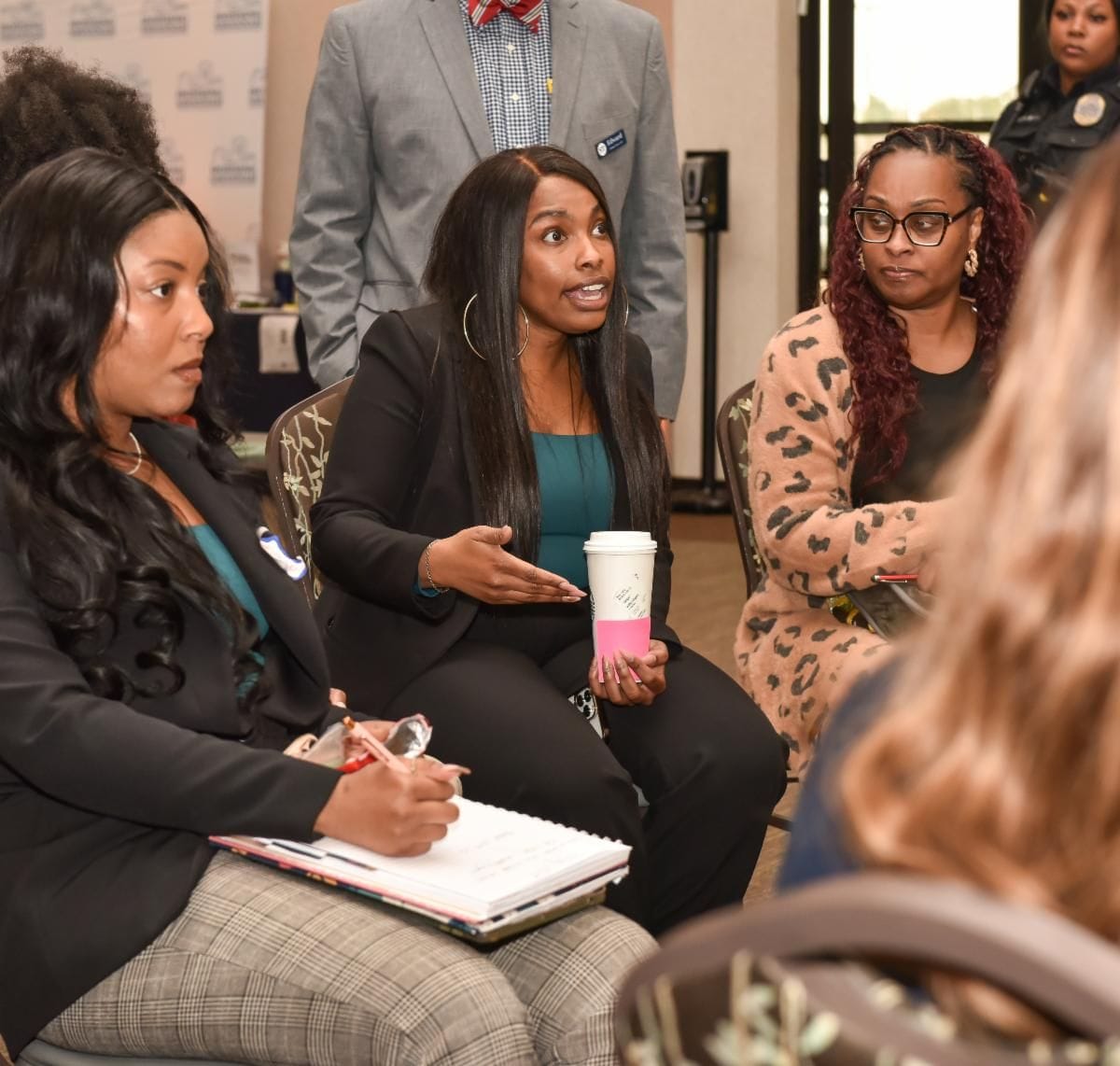
We’re active on social media; we speak to local civic and professional groups; we attend neighborhood association meetings; we engage with local media whenever possible; we host small-scale events; we send out a digital newsletter.
We’re active with the local YIMBY Savannah (Yes, In My Backyard) group; we attend Council, Commission, and MPC meetings as frequently as possible.
We’re active with several other civic groups focused on quality of life and livability concerns in our region; we participate in other organization’s efforts as appropriate.
In short, there are thousands of ways that we can engage with citizens, business and civic leaders and while it’s impossible to be everywhere at the same time, or do everything, we try to do as much as we can to have conversations about and around housing to help push forward a proactive and positive, intentional approach to addressing our housing needs.
Collaboration seems to be at the heart of Housing Savannah’s approach. Could you elaborate on how the organization partners with local residents, businesses, and government entities to create sustainable housing solutions?
Yes, collaboration is critically important. Unless we all work together to address these issues, collectively and collaboratively, we won’t be successful.
In February 2024, Housing Savannah hosted a Housing Summit, which we called “There’s No Place Like Home.” It was the first of what I hope will be an annual event for all of the housing practitioners and stakeholders (residents, municipal staff, elected officials, business leaders, faith leaders, etc.) to come together to discuss the various pain points and challenges each are facing, and then to work together to address those specific issues.
Too often, when we work in silos, we miss opportunities to streamline a process or to see an issue from someone else’s point of view. When we openly discuss and talk through challenges, options, and ideas, we stand a much better chance of finding a reasonable solution that will have the most positive impact possible for the greatest number of people.
We’re also actively working with a wide variety of other non-profits and sharing the best practices that we’re seeing in other communities with municipal staff and elected officials.
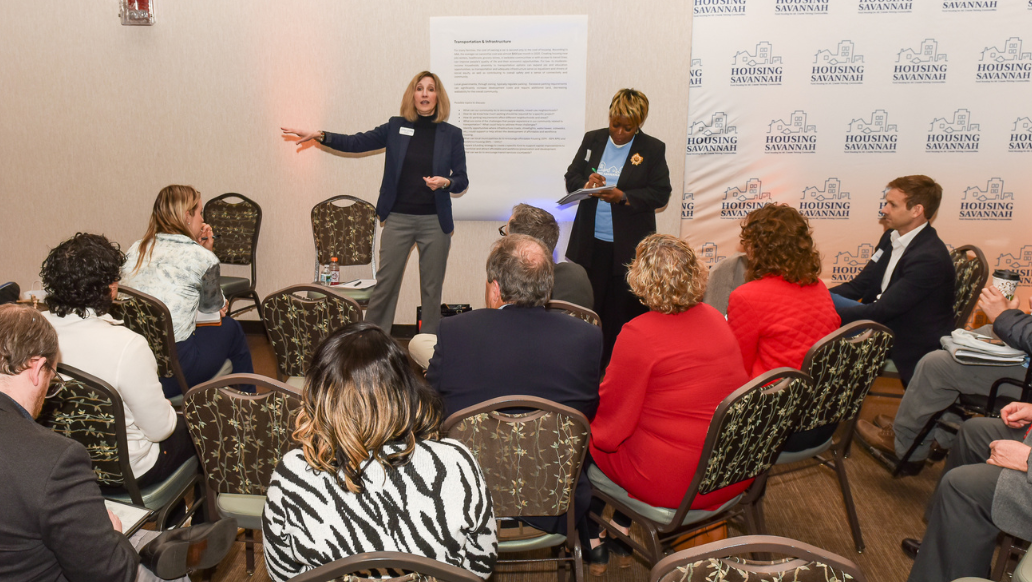
In the context of rising rents and housing costs, what long-term solutions is Housing Savannah advocating for to ensure that housing remains within reach for all income levels in Savannah?
Again, the most direct way to relieve the pressure on both buyers and renters is to add supply. Simply put: we need more housing units available for purchase and for rent.
To address this, Housing Savannah is:
1) advocating for local municipalities to update their zoning ordinances to allow for Missing Middle housing types to be allowed-by-right, which will in turn more housing to be built where infrastructure is already in place;
2) advocating for local municipalities to streamline their zoning and permitting processes, especially for affordable housing units;
3) fundraising for the SAHF, which is a nimble and responsive tool that allows us to focus on meeting the needs of local residents;
4) educating local elected officials and municipal staff about proactive housing initiatives;
5) and advocating for thoughtful and intentional growth strategies, to ensure that we’re embracing common-sense density in locations where it’s appropriate and discouraging more sprawl.
We’re also advocating for the support of a local land trust, to help develop and preserve perpetually affordable housing, which offers reasonable options especially for low- to moderate-income households trying to get onto the first rung of the property ladder.
Education and advocacy are crucial components of your work. How does Housing Savannah engage with the community to raise awareness and drive policy changes that support affordable housing?
Housing Savannah seeks to bring affordable housing forward as a topic worthy of attention, discussion, and collective action, so we’re eager to engage with anyone, or any group, that is interested in tackling housing issues.
We attend as many different meetings and events as we can, we present to as many different groups as will have us, and talk with everyone we can, all to encourage an open dialogue on this very important topic.
With our focus on education, advocacy, and fundraising for the SAHF, Housing Savannah seeks to raise the level of awareness within our community about the challenges we’re facing, the importance of pro-housing efforts and initiatives, and to elevate the discussion about housing, working to dispel myths and misunderstandings around housing, combat NIMBY-ism (Not In My Backyard), and encourages private and philanthropic investment into affordable housing initiatives and programs.
Looking ahead, what are the biggest challenges and opportunities you foresee in the pursuit of affordable and workforce housing in Savannah?
This won’t be a popular answer, but in my opinion, the biggest challenge is how uncomfortable people are with making any kind of change.
It’s human nature to want things to be familiar, to be easy, and to be painless – but addressing the housing crisis won’t be easy or painless, and it will certainly seem unfamiliar at first.
We’re going to have to acknowledge that redlining and systemic racism is the cornerstone of our current zoning ordinances which prevent anything other than standalone single-family homes in most areas. Now that we know better, we need to do better.
We need to be open to the growth that we know is coming and proactive in how we handle it. To think that we can simply pull up the ladder and people will go elsewhere is just foolish.
If we don’t find ways to build more homes that are safe, healthy, and in places where there is existing infrastructure, we will continue to see more and more people pushed farther and farther away and we’ll be actively contributing to the gentrification of our neighborhoods.
It’s difficult, but we have to work to find the balance. People have diverse, and often conflicting, priorities. Cities are not static entities that can be perfectly modeled and manipulated. They are organic, complex, and messy.
The next biggest challenge is our out-dated zoning ordinances. As I’ve said already, until we update our zoning to reflect our current and future needs instead of what we used to want, we’ll be stuck in an unproductive death spiral.
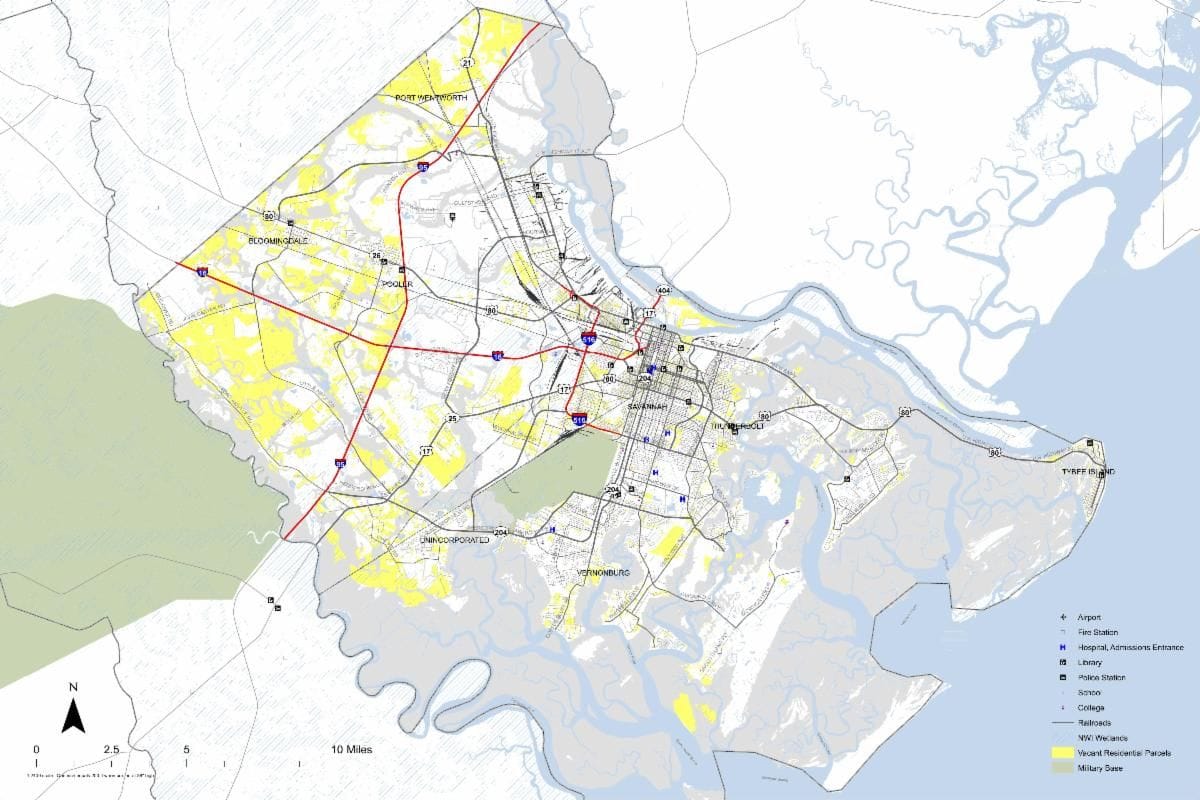
Finally, how can the broader Savannah community—whether individuals, businesses, or local organizations—get involved in supporting Housing Savannah’s mission?
The community can contribute to the SAHF through Housing Savannah’s website; they can volunteer with a housing non-profit – like United Way’s Housing Heroes or Habitat for Humanity; and they can advocate for pro-housing initiatives with their local municipal staff and elected officials. But maybe even most important of all, they can be open to thoughtful and intentional growth.
With the necessary investments in our community to preserve and create housing that is affordable for our citizens at all economic levels and with a variety of housing choices, we will have a vibrant, thriving community that keeps pace with the rest of our state and region.
Want to learn more or support the cause? Visit their website to learn more and get involved in helping our community, one family at a time.

